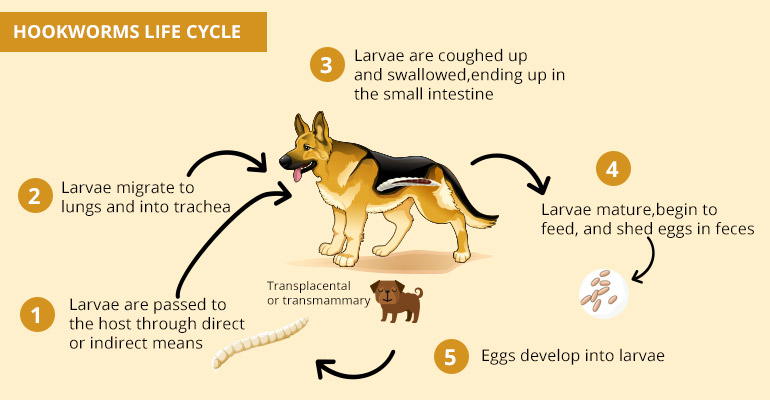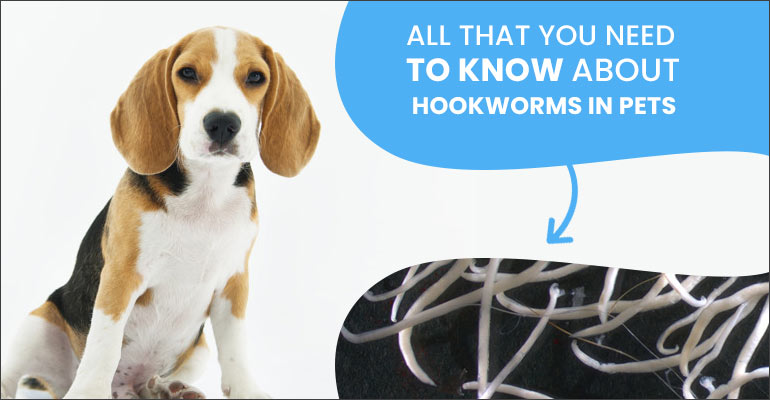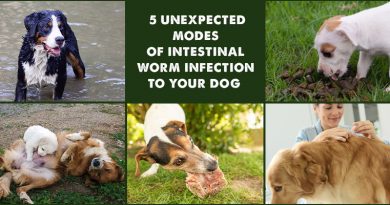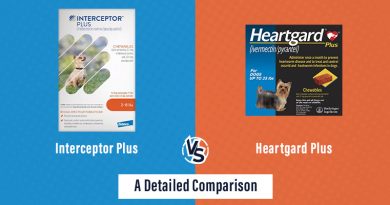All That You Need To Know About Hookworms in Pets
Worms are one of the most common and widespread diseases in pet animals especially cats and dogs. One such type of worms known as hookworms affects pets in large numbers every year. While it is imperative to cure your pal of these nasty parasites, it is important to know how they affect your dogs or cats and what these intestinal worms are all about.
Hookworms in Dogs
Hookworms in dogs are caused in many ways than you can think of. These worms are generally transmitted from an infected animal either by eating their feces or food contaminated with such worms. These pesky creatures invade the body and spread quickly and cause havoc in the digestive system. Due to the fact that hookworms can be transferred from animal to animal, it becomes highly difficult to protect your pal from such a disease. Hence, it is important to take note of the symptoms because early detection can go a long way in curing your fuzzy pal.
Symptoms of hookworms in dogs include:
- Anemia
- Appetite Loss
- Dark or Blood-red Stools
- Diarrhea
- Excessive Coughing
- Lethargy
- Skin Irritation
- Weakness
Hookworms in Cats
Hookworms are highly common in cats and generally affect young kittens. They can be very fatal if not taken care of at its initial stage. These small thread-like creatures enter a cat’s body and get attached to the walls of the intestines causing loads of disturbances and uneasiness. It is imperative to detect them early to avoid further life-threatening issues. For this, it is essential to pay attention to the symptoms.
Hookworm symptoms in cats are as follows:
- Appetite Loss
- Breathing Issues
- Black or Blood-red Feces
- Constipation
- Coughing
- Diarrhea
- Faded Fur Coat
- Reduction in Weight
- Tiny Lesions developing near foot pads
- Wheezing
Hookworm Life Cycle
Hookworm eggs can be found in the stool of your pet. Over time, these hatchlings develop inside the body and form hookworm larvae. These larvae enter the body by way of ingesting things that lay strewn on the ground. It also enters the body by way of picking on their fur. Such worms crawl through the stomach and paw and spread all over the skin. They can also be transmitted by other animals especially rodents. Puppies that are infected by hookworms generally get them from their infected mother’s milk. These worms, when left untouched for months, develop into adult worms that happen to lay eggs.
The hookworm lifecycle displayed below vividly shows how hookworms affect your pets.

Treating Hookworms in Dogs and Cats
Thankfully though, there are many treatment methods available that help to eliminate and prevent your pal from hookworms. One of the best ways to get rid of hookworms is to use these deworming treatments:
- Antezole Deworming Paste
- Drontal
- Cazitel Flavored Allwormer
- Mediworm Plus
- Triworm-D Dewormer
Apart from these, other treatment methods include:
- Supplements
- Fluid Therapy
- Surgery
Before you seek treatment for hookworms, it is important that you consult a vet. Make sure to at all times keep your pets safe because after all he is your lil munchkin and you’d do anything to keep him safe. Right?
[otw_shortcode_button href=”https://www.budgetvetcare.com/dog-wormers/c101.aspx” size=”medium” icon_type=”general foundicon-plus” icon_position=”left” shape=”radius” target=”_blank”]Best Hookworm Prevention[/otw_shortcode_button]




